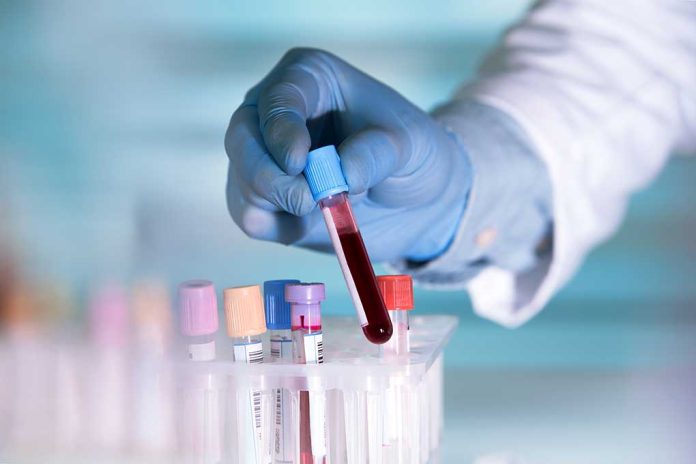
DARPA’s groundbreaking “Red Blood Cell Factory” program aims to revolutionize soldier protection through innovative blood cell modifications.
Key Takeaways
- DARPA’s RBC-Factory program enhances red blood cells to protect soldiers in extreme conditions.
- Modified red blood cells (mRBCs) offer broad, durable, and reversible protection without genetic modification.
- The program targets physiological stressors like extreme temperatures, oxygen levels, and diseases such as malaria.
- A medical device prototype for efficient RBC modification will be developed within 21 months.
- The research could have far-reaching implications for infectious disease treatment and oncology.
DARPA’s Revolutionary Approach to Soldier Protection
The Defense Advanced Research Projects Agency (DARPA) is embarking on a cutting-edge initiative called the “Red Blood Cell Factory” program. This innovative project aims to enhance soldier resilience in demanding conditions by augmenting red blood cells with active biological elements. The program’s primary focus is to develop red blood cells that can serve as carriers for sustained-release medications and other protective agents, potentially transforming military practices and offering enhanced protection for troops.
Dr. Christopher Bettinger, the program’s primary contact and a professor at Carnegie Mellon University, explains the necessity for such advancements: “The current state of the art to maintain and protect warfighters operating in extreme environments or facing potential threats requires administration of pre-exposure prophylaxes or post-exposure medical countermeasures.”
DARPA’s approach addresses the limitations of current protection methods, which often come with side effects, limited efficacy, and logistical challenges. By modifying red blood cells, the program aims to provide a more effective and sustainable solution for soldier protection.
The Science Behind Modified Red Blood Cells
The RBC-Factory program is designed to create a platform that can “accessorize” human red blood cells with biologically active components. These components may include small molecules, peptides, proteins, pigments, colloids, and nanomaterials. The goal is to enhance soldiers’ performance in dangerous or extreme environments by loading red blood cells with these specialized “cargoes.”
“Modified red blood cells will allow recipients such as warfighters to operate more effectively in dangerous or extreme environments,” DARPA states, highlighting the potential impact of this technology on military operations.
One of the key advantages of using red blood cells as a modification medium is their long lifespan, which makes them ideal candidates for sustained drug delivery. However, researchers must carefully balance modifications to ensure the body still recognizes these cells as its own.
DARPA’s RBC-Factory program aims to create a platform to modify human red blood cells (RBC) to include additional biologically active components that protect warfighters and allow them to operate more effectively in extreme or threat environments.https://t.co/uygxF6aBGQ pic.twitter.com/8xFZS3FC7D
— USA Patriotism! (@USAPatriotismOg) January 5, 2025
Potential Applications and Impact
The implications of DARPA’s RBC-Factory program extend far beyond military applications. The research could revolutionize the treatment of infectious diseases, such as malaria, by using red blood cells as efficient drug delivery systems. Moreover, the technology has potential applications in oncology and other medical fields.
In addition to combating diseases, modified red blood cells could potentially extend medication duration and aid in stopping hemorrhaging from trauma. This innovation could significantly reduce the need for prolonged medicinal dependence and improve overall soldier resilience in challenging environments.
Ethical Considerations and Future Outlook
As with any advanced biotechnology research, DARPA’s RBC-Factory program raises important ethical questions. The agency is developing an ethical, legal, and societal implications (ELSI) plan to address concerns related to acceptance, adherence, and equity impacts of this technology.
While the United States is at the forefront of this research, it’s worth noting that other nations, such as China, are also exploring military biotechnology, often with fewer ethical constraints. This underscores the importance of maintaining a balance between technological advancement and ethical considerations in the pursuit of enhanced human performance for military applications.









